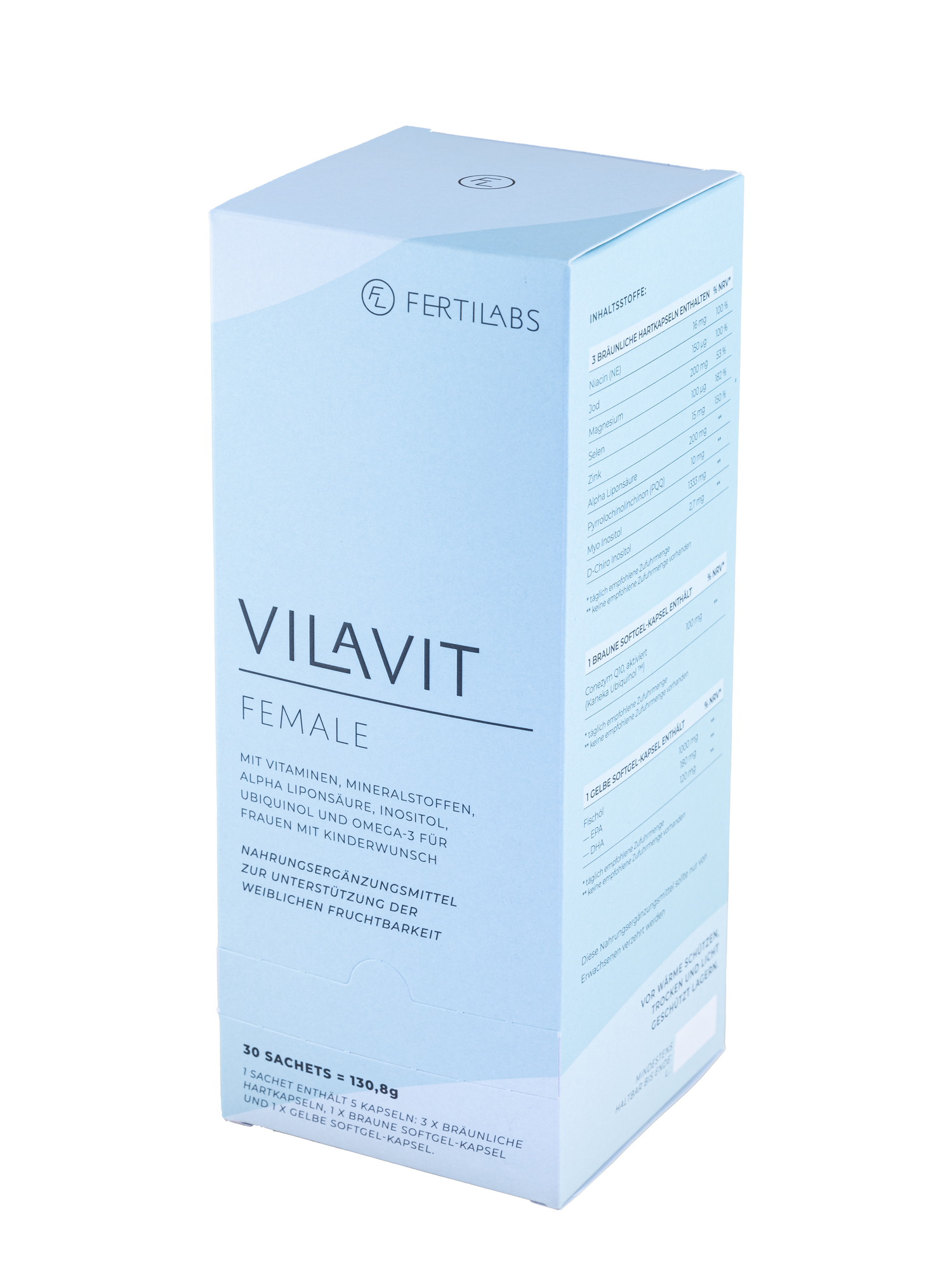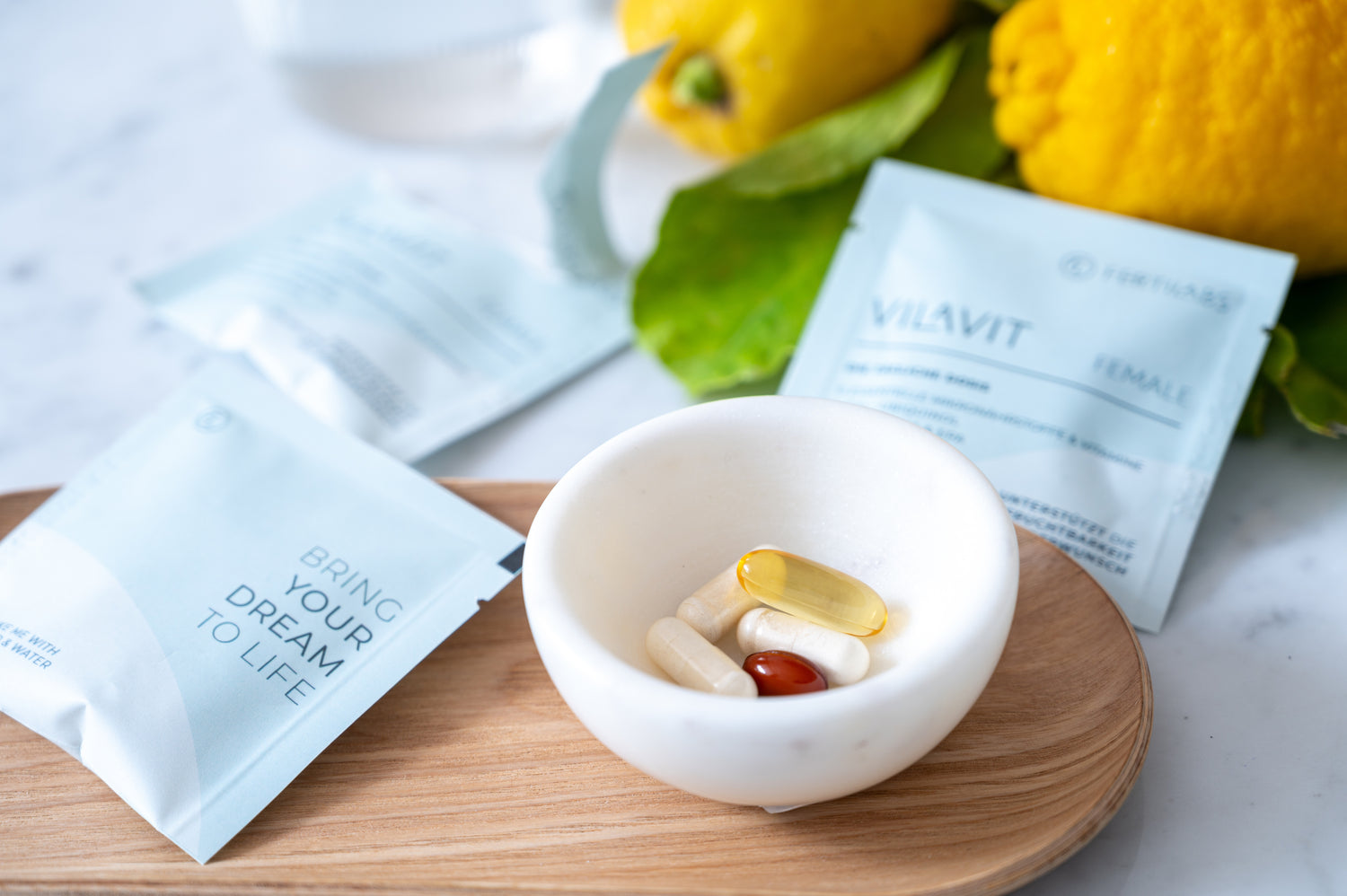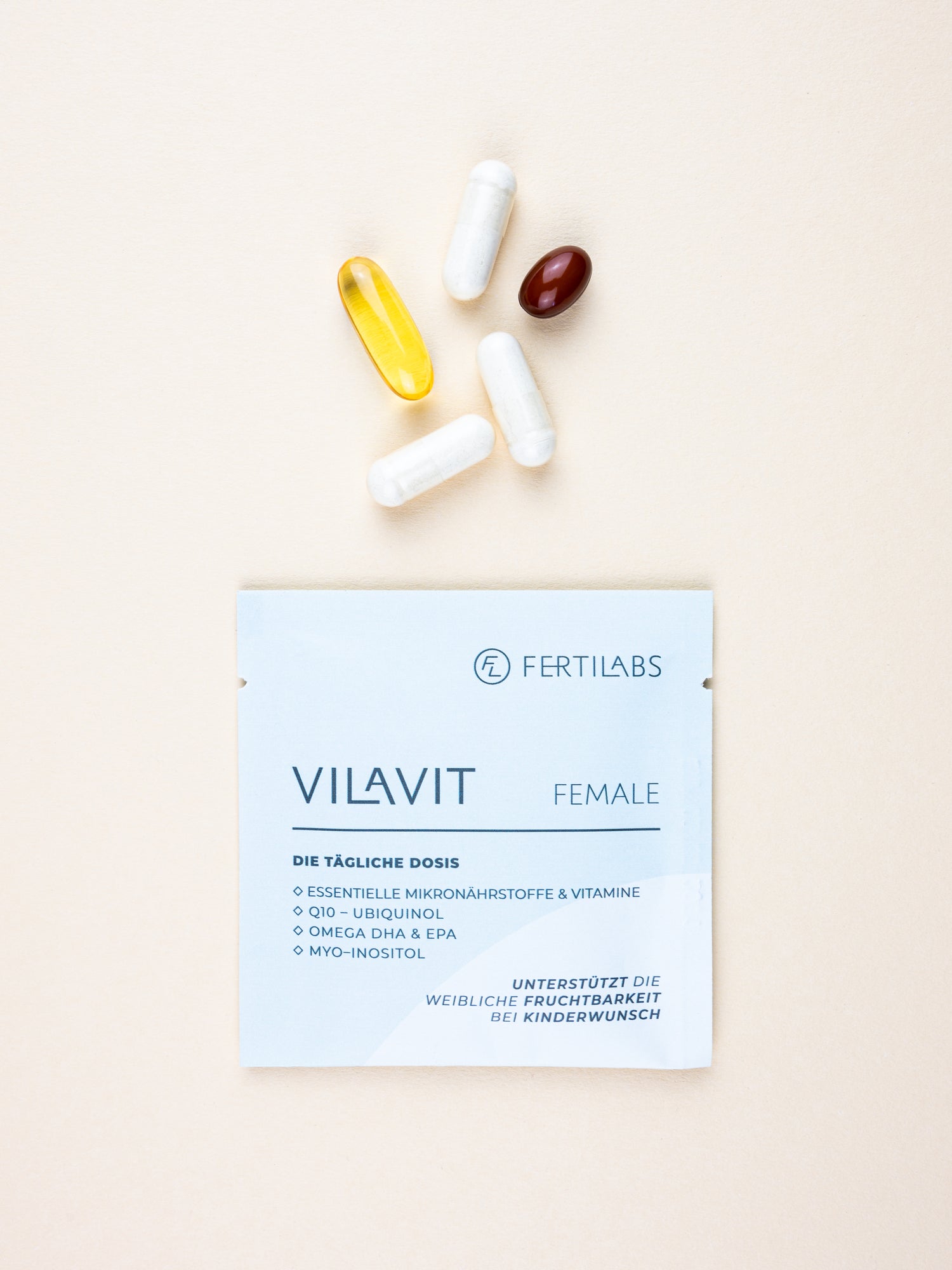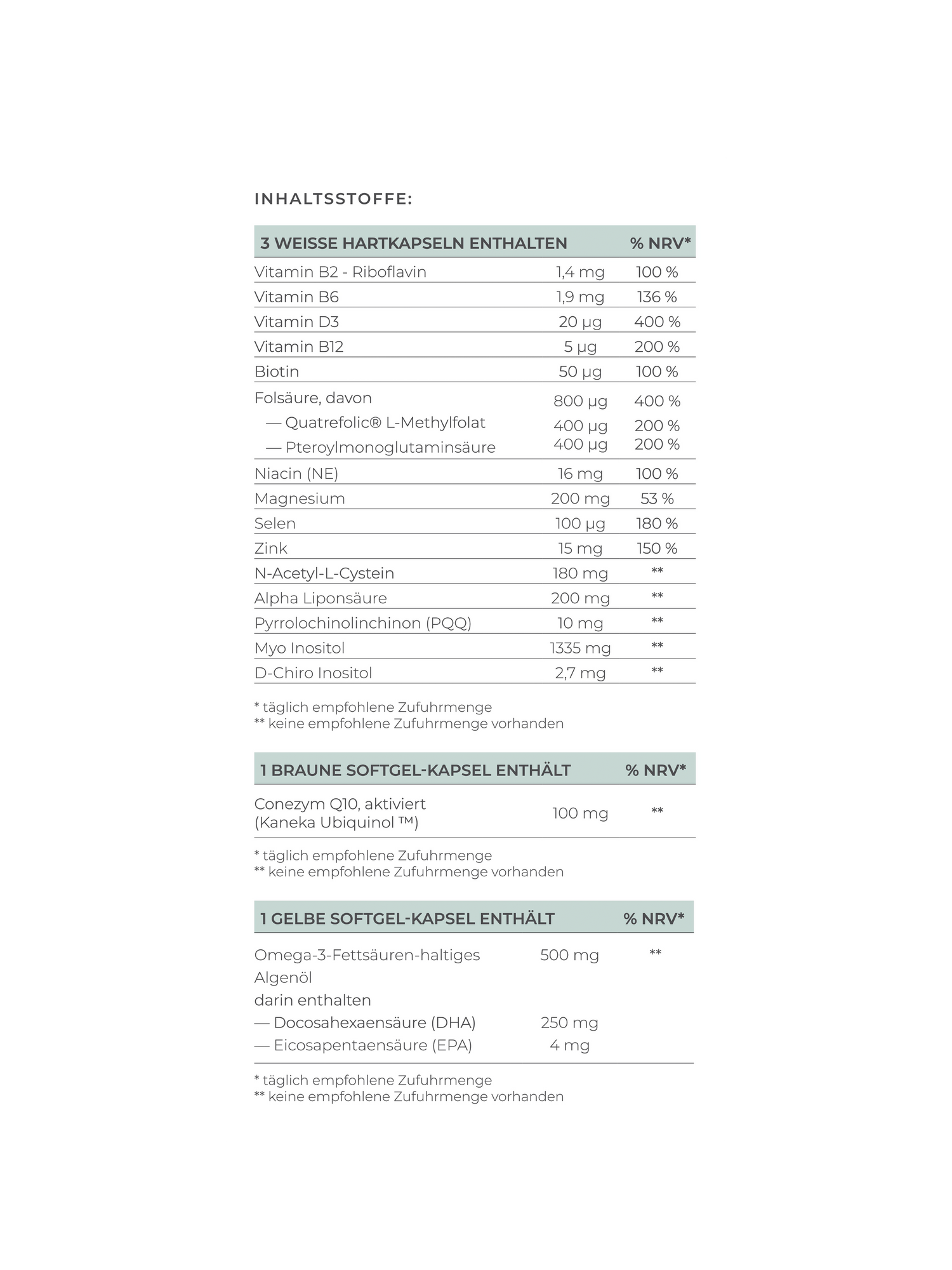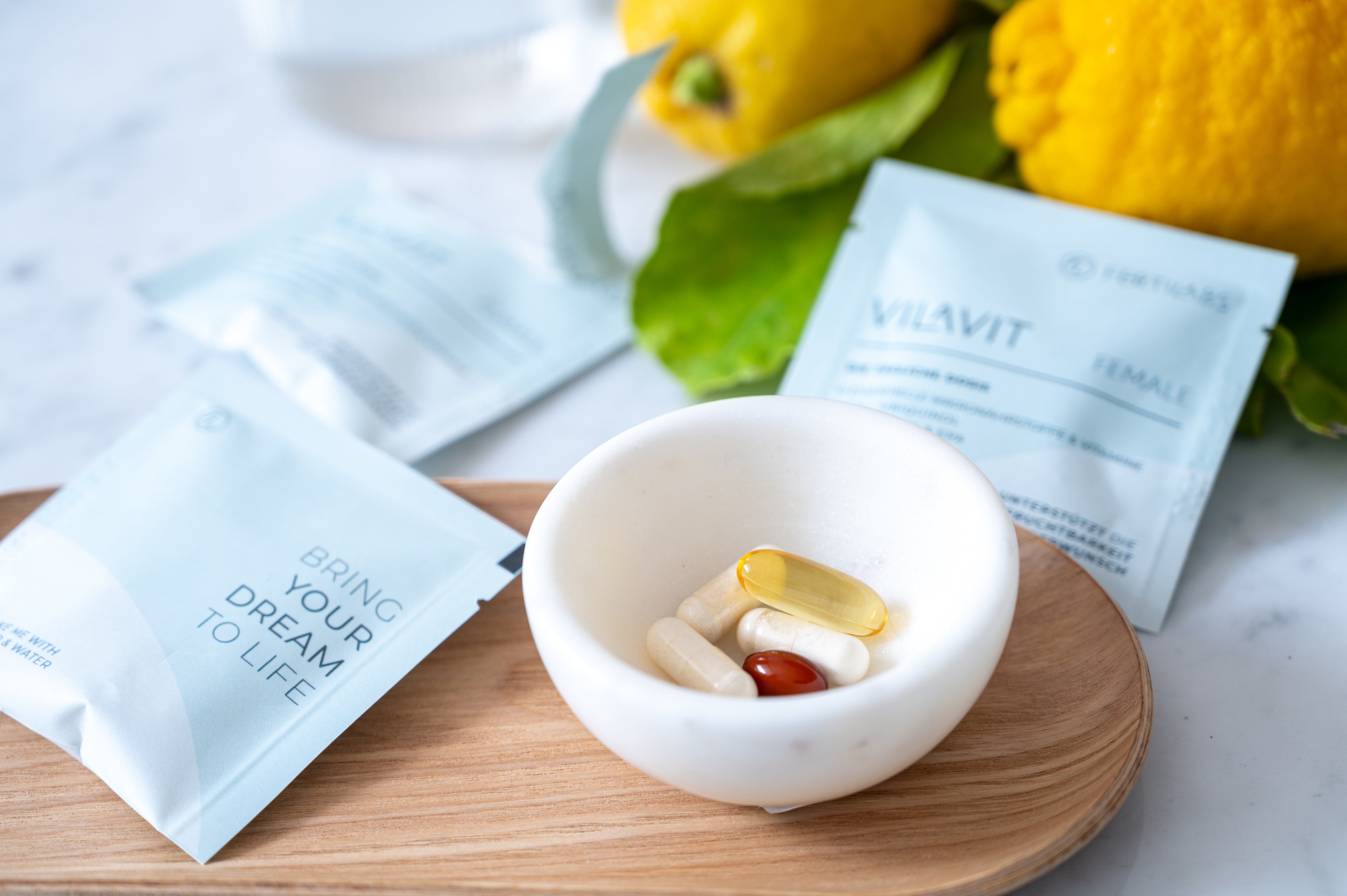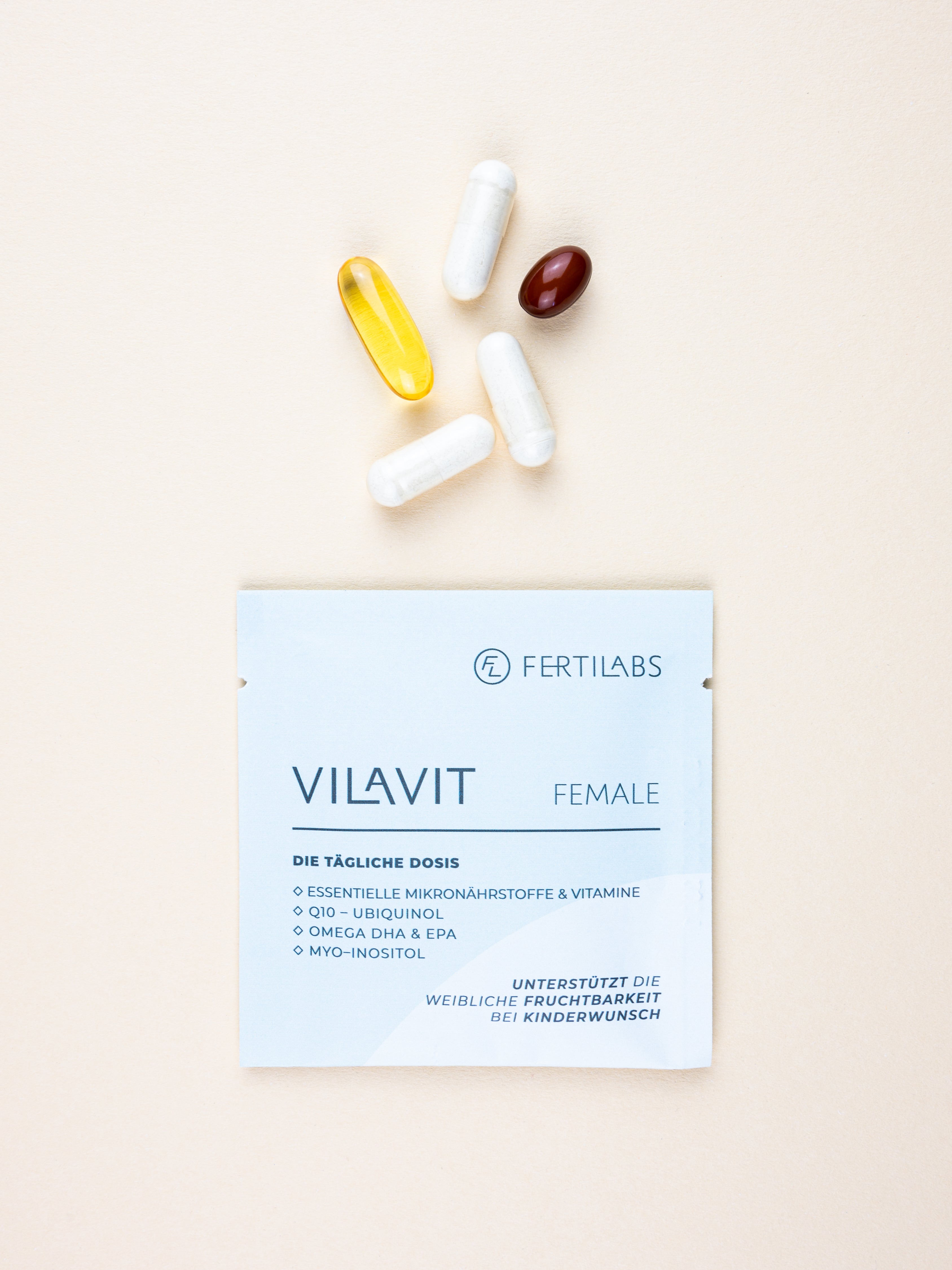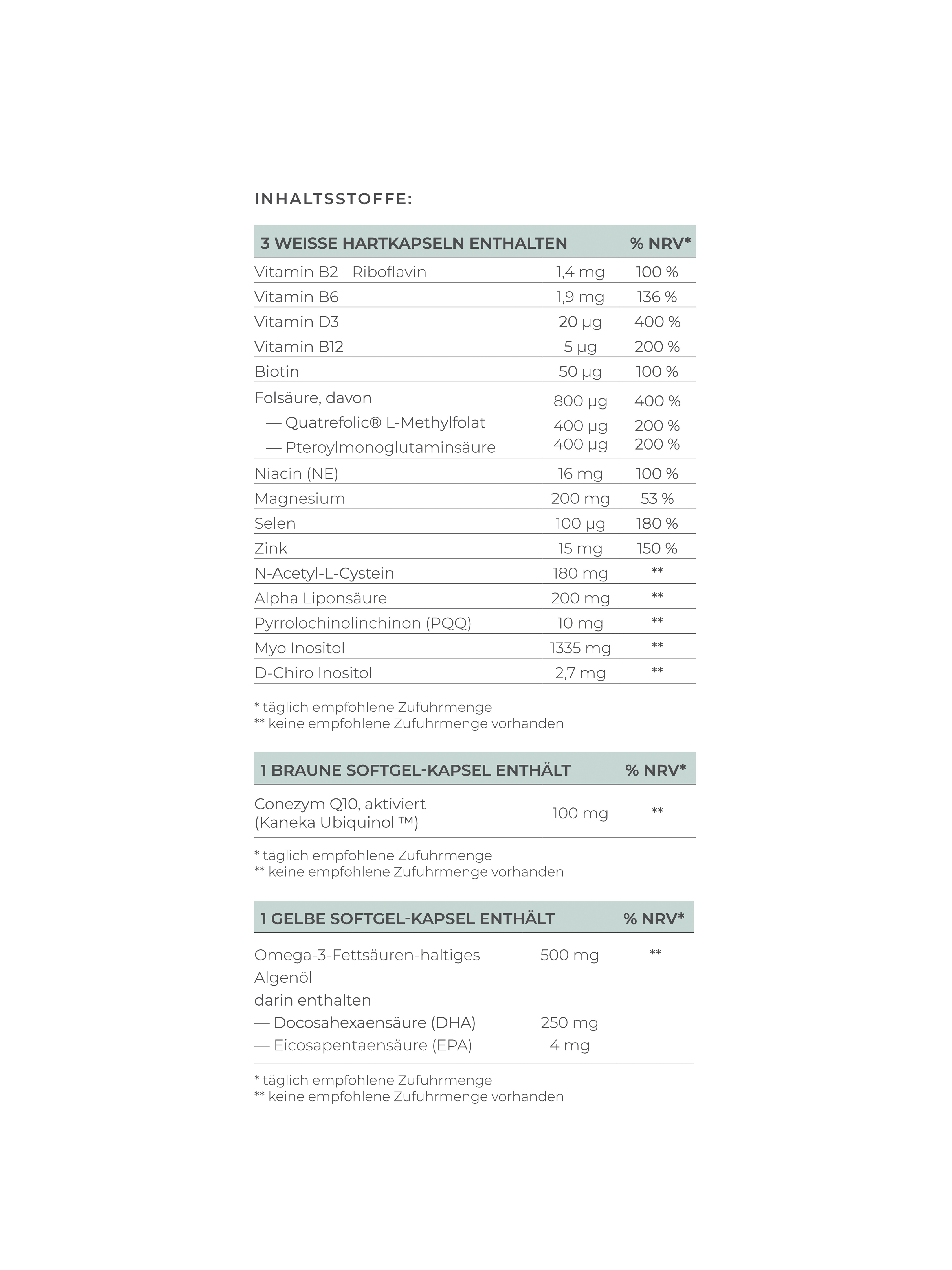One shot, one hit – unfortunately, getting pregnant doesn’t always happen that quickly. Because even if romantic comedies keep trying to convince us that there is a baby guarantee even with a one-night stand, the reality is unfortunately different: On average, it takes about 4 months for a pregnancy to occur. But even after this time, there is still no reason to worry. Every 5th couple needs more than twelve months to get pregnant - under optimal conditions, fertile partners and an age of under 38 years. We don't want to wait that long. So here are five tips from us on how you can give nature a helping hand, increase your chances of conceiving and hopefully be happy about a positive pregnancy test soon!
1. Support your body with micronutrients
They increase fertility, reduce the risk of miscarriage and promote cell division - we're talking about micronutrients, often referred to as fertility supplements. With a balanced diet, some of them are usually automatically ingested through food, but the demand for certain nutrients is simply too high. In this case, it makes sense to supplement with the following micronutrients:
- Co-enzyme Q10 (Ubiquinol ): The vital antioxidant protects cells from free oxygen radicals, strengthens the mitochondria, increases the number of fertilizable egg cells and improves their quality.
- Myo-inositol : This isomer is not only recommended during pregnancy to prevent gestational diabetes, but also before it to increase fertility ( especially in PCO syndrome ).
- Vitamin D : This vitamin is essential for the development of the brain, the immune system, the organs, the skeleton and the metabolism of the fetus. But even before pregnancy, it can help to increase fertility and fulfill the desire to have children.
- Alpha Lipoic Acid : Especially when combined with myo-inositol or folic acid, this element can promote subfertility in women and increase the chances of pregnancy by improving sperm and egg quality respectively.
2. Avoid stress
Although prolonged stress does not have a direct impact on fertility, it can indirectly lead to a situation where sex life suffers or the desire to have children is neglected. Acute stress can also trigger the two stress markers cortisol and alpha-amylase, which can reduce the chances of a successful conception by up to 30%. We therefore recommend regular relaxation exercises ( such as yoga and meditation), sufficient exercise and less pressure when planning to have children.
3. Determine your fertile days
Even in fertile couples, the probability of getting pregnant is only 20-30% per cycle. In order to maximize these chances, it makes sense to be specifically active on the days before and during ovulation. We therefore recommend using an ovulation calculator or an ovulation app to analyze your individual cycle and determine your fertile days.
4. Eat the right diet & exercise regularly
A healthy lifestyle provides our body with many important micronutrients, reduces our stress level and gives us enough energy to start our day and plan our children. We therefore recommend a balanced, vitamin-rich diet in combination with relaxation exercises and vigorous sport.
5. Avoid alcohol & nicotine
These two toxins are not only dangerous for the unborn child during pregnancy, but also before pregnancy. Because they can not only lead to intrauterine growth disorders, but also prevent implantation from taking place at all. The reason for this is that nicotine lowers the levels of the female hormones estrogen and progesterone, and alcohol weakens progesterone production. We therefore recommend that you stop using these addictive substances at least three months before you become pregnant.


